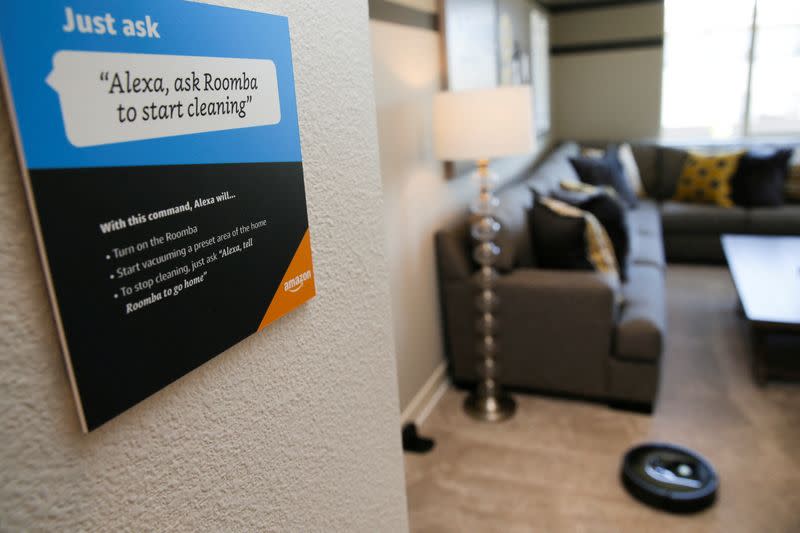Amazon's abandoned acquisition leaves iRobot in Carlyle debt straightjacket

By Greg Roumeliotis
(Reuters) - The collapse of iRobot's $1.4 billion sale to Amazon will test the cash-strapped robot vacuum cleaner maker's ability to repay a $200 million loan it took from private equity firm Carlyle Group last year.
The Roomba vacuum maker said on Monday it would lay off 31% of its roughly 1,130 employees and cut costs to save $150 million or more, as the deal's demise in the hands of European antitrust regulators left it confronting plunging revenue and soaring losses.
Regulatory filings shed light on how the terms of the Carlyle loan that iRobot accepted last July to tide itself over during the deal's regulatory review are weighing on its finances and have added to the pressure to cut costs.
The Bedford, Massachusetts-based company said on Monday its agreement with Carlyle requires it to set aside $75 million out of a $94 million deal break-up fee it will receive from Carlyle towards repaying the loan.
The loan runs to July 2026 and charges iRobot an annual interest rate of as much as 9% plus the Secured Overnight Financing Rate (SOFR), totaling 14.3%, the filings show.
Private equity firms like Carlyle charge more than banks to lend to companies, because they are more open to negotiating custom terms and willing to take on more risk. Yet even by that measure, Carlyle's loan is pricey.
Its spread of 900 basis points compares to an average spread of 599 basis points in direct lending deals of private equity firms with large companies, Loan Pricing Corporation data showed.
To ensure a sweet deal, Carlyle negotiated a minimum guaranteed return, so that even if iRobot prepays the loan, the private equity firm will have made 1.4 to 1.7 times the loan's principal, the filings show.
Carlyle also restricted iRobot's ability to spend money before the loan is repaid. The loan terms require iRobot to maintain a minimum of $250 million in cash, accounts receivable and inventory, the filings show.
The company had double that amount in hand as of the end of September, according to its most recent earnings disclosure. But it also said losses grew to $241 million in the first nine months of 2023 from $202 million in the year-ago period.
An iRobot spokeswoman said the company had no comment beyond its public disclosures. A Carlyle spokeswoman declined to comment.
The iRobot loan is one of several direct lending deals that private equity firms jumped on last year as banks retrenched amid underwriting losses caused by the rapid rise in interest rates.
While most direct lending deals pertain to leveraged buyouts, Carlyle, which managed $150 billion in credit assets as of the end of September, has carved out a niche for lending to non-private equity owned businesses. Its recent loan deals include Park County, the intellectual property owner of media franchises South Park and Book of Mormon.
iRobot's shares soared during the COVID-19 pandemic as stay-at-home consumers splashed out on its fancy vacuum cleaners. But as the novelty fizzled and inflation soared, sales dropped and its finances deteriorated. The stock ended at $14.25 on Tuesday, its lowest since 2009, giving iRobot a market value of about $400 million.
iRobot, whose Chief Executive Colin Angle stepped down on Monday and was replaced on an interim basis by Chief Legal Officer Glen Weinstein, has said that the cost cuts, together with improvements in its marketing strategy and product offerings, will help it return to profitability.
(Reporting by Greg Roumeliotis in New York; Editing by Richard Chang)
